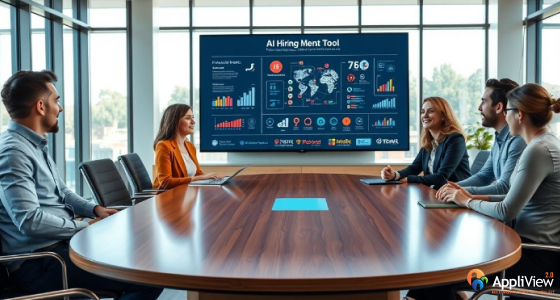This blog explores how automating job descriptions can speed up hiring, reduce errors, and improve consistency using AI and data tools. It highlights key benefits, challenges like depersonalization and cost, and real-world examples from large companies. The future points to smarter, more human-like automation.
Introduction

In today’s fast-moving business world, hiring the right people quickly is more important than ever. With many companies competing for top talent, writing job descriptions—once a slow, manual task—is now ready for automation. This new technology is changing how hiring works by making it faster, cutting down mistakes, and using smart data. But while automation brings great benefits, it also comes with challenges that impact companies, employees, and job seekers.
The Origins of Job Description Automation

The automation of job descriptions has grown as part of the bigger trend of using AI, machine learning, and natural language tools. At first, automation helped with simple hiring tasks like checking resumes and shortlisting candidates. But as technology improved, it started handling more complex tasks—like creating and improving job descriptions. This change helps companies deal with many job postings while keeping things clear, consistent, and in line with company rules.
Core Ideas Pros and Cons of Automating Job Descriptions

Pros
1. Faster and More Efficient
Automated tools can create job descriptions in seconds, helping companies post jobs quickly and meet business needs faster.
2. Consistency and Legal Safety
Automation helps keep job posts in line with company rules and legal guidelines, avoiding mistakes.
3. Fewer Errors
It cuts down on mistakes like typos or biased language, making job descriptions more professional.
4. Smart Insights
These tools use data to improve how job descriptions perform, making them easier to find and more attractive.
5. More Time for Recruiters
With routine work automated, recruiters can focus on connecting with candidates and planning better hiring strategies.
Cons
1. Feels Less Personal
Automated content may miss your company’s unique style, making job posts sound plain or generic.
2. High Setup Costs
Getting started with automation tools can be expensive, especially for smaller companies.
3. Worries About Job Loss
Some HR roles may change or disappear, leading to job security concerns.
4. Tech Issues
Errors or bugs in the system can slow things down and cause trust issues.
5. Too Much Dependence
Relying too much on automation might cause recruiters to lose their hands-on skills over time.
Real-World Applications and Examples

Many big companies now use automation to make their hiring process smoother.
1. Fast Pre-Screening and Matching
AI tools quickly go through applications and match the right candidates to job descriptions. This saves recruiters a lot of time.
2. Same Style Across Teams
Global companies use automation to make sure all job descriptions follow the same rules and brand style, no matter the location.
3. Better Search Visibility
AI platforms improve job posts so they show up more in search results and attract a wider range of applicants.
Challenges, Limitations, and Critical Viewpoints

Even though automation has clear benefits, there are some important concerns:
1. Lack of Personal Touch
Automated job descriptions can feel too general, making it harder to attract people who fit the company’s culture.
2. Pushback from Employees
Some staff may resist automation because they worry about losing their jobs or don’t understand how the system works.
3. High Upfront Costs
Setting up automation can be expensive, and if not done properly, it may take a long time to see any return on investment.
Emerging Trends and Future Possibilities

The future of job description automation looks promising:
1. Smarter Writing with AI
AI will write job descriptions that sound more natural and reflect the company’s values and culture.
2. Spotting and Removing Bias
Advanced systems will help find and remove unfair or biased language in job posts.
3. Data-Driven Descriptions
Job postings will be updated in real time using data to better match the right candidates.
4. Teamwork Between AI and People
Automation will handle routine writing, while humans add personal and creative touches.
Conclusion
Automating job descriptions can greatly boost efficiency and accuracy, allowing HR teams to focus on strategy. But it’s important to balance tech with a personal touch. To get the most out of automation, choose flexible tools, provide proper training, and keep your company’s voice in every post. Ready to upgrade your hiring? Discover our AI-powered solutions designed to simplify recruitment and keep your job postings smart, clear, and human.
